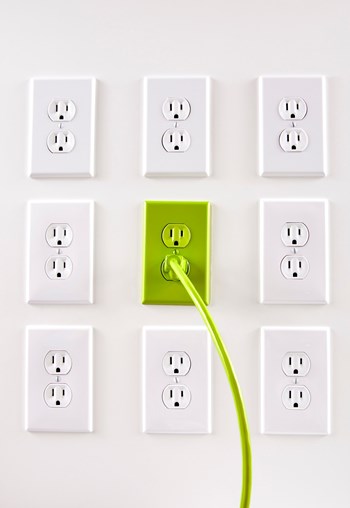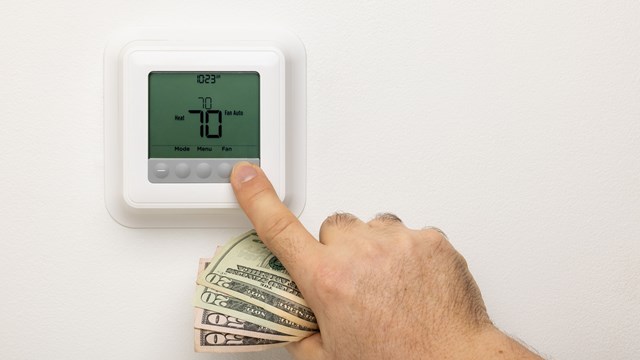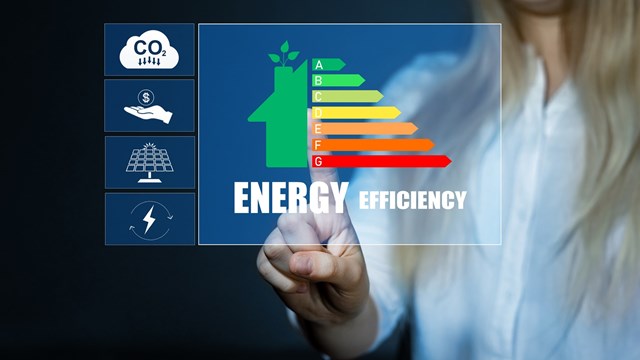
In November of 1999, New Jersey deregulated its electricity market, allowing utility companies to engage in full competition for customers' dollars in the interest of saving them money. Customers, whether residential or commercial, can save by conducting an energy audit and by applying for various rebate and incentive programs mandated by the state. Energy audits—unlike IRS audits—can help homeowners save money by identifying areas where units and common spaces can be made more energy efficient.
We Interrupt Our Regularly Scheduled Energy Programming…
The New Jersey Board of Public Utilities (NJBPU) and the Office of Clean Energy (OCE), a publicly funded state program based in Newark, administers a series of energy efficiency and renewable energy programs, which are implemented and managed by the various gas and electric companies operating in New Jersey. According to Michael Winka, director in the OCE for the NJBPU, the number of meters in a property determines what kind of program—residential or commercial—one should apply for. "If an individual homeowner with an individual meter applies, we would treat them as a residential customer," he explains. "If an association has a common meter and it's owned by a business or an association, then it would apply as a business under the commercial/industrial programs, and they would look at it from that aspect."
He says a multistory apartment building—which doesn't usually have individual meters—is considered to be a business. In that case, he continues, the business owner who supplies heat and electricity to the building applies for rebates and incentives.
"There's any number of energy efficiency and renewable energy programs," says Anne Marie McShea, administrator for marketing and communications in the OCE. "The core program for the renewable energy side is the renewable energy rebate program." However, she adds, the BPU also offers a number of energy efficiency programs. Among those is WARMAdvantage/Cool Advantage, which provides eventual savings on home heating and cooling systems for improved performance. McShea says any New Jersey resident with an Energy Star appliance can apply for rebates.
"All of the major energy users could be covered under our programs," McShea adds.
A Fistful of Rebates
"We have a whole list of prescriptive rebates," Winka says, which can be found on www.njcleanenergy.com. "We also look at custom design, so to be flexible in the program, there are things that we provide prescriptive rebates for that we do time and time again, and then to make sure we have enough flexibility we provide a technical review of any custom design that's saving energy." His company, he says, looks at the energy savings versus the capital cost and calculates some incremental capital cost that they will fund in the project.
The OCE also offers solar installation. According to McShea, "This is one of our key programs. It's a renewable energy rebate program, and it provides a rebate from 60 to 70 percent off the cost of a solar system or some other form of on-site generation."
For a co-op or condo to benefit from such a program, McShea says, "[They] can contract out through a vendor or solar installer to install solar and apply for the rebate, because they are available for a broad range of sizes. They wouldn't be limited because of the size of the system—they would need to serve multiple units." She says the building would then cost-share the balance remaining on the system.
Custom design savings factor in depending on the equipment being used and its actual use in the building. Winka says, "If you're doing a large boiler and the condo association had a heater for its pool, we would look at something in that regard. We're looking at developing a solar hot-water heater incentive for pools, so the condo association as a business could apply in those regards." He says if the condo association were developing combined heat and power for all the homeowners or generating all the electricity on the renewable side, that would be considered custom design.
You're Being Audited
Winka says today's associations and individual homeowners can both do the job of auditing their energy usage for themselves. "We have a web-based audit system where you can go, and it asks you all the questions about your property: how many windows, where the walls are, the size of the walls, etcetera. You can do it in a very easy manner with a minimum of information, and it can get you started with suggestions on what to do for energy savings."
Bob Gallo, director of sales and new business development for the New Jersey Natural Gas Company in Wall, says the program can be accessed through www.njliving.com, and that it will ask for an electric account number and a natural gas account number, which it then uses to get the customer into a customized online program that will ask the above questions and more. "At the end of the report, it'll share with you not only how you scored, but how you compare to your neighbors in similar type structures in that region," Gallo says. "It provides hands-on, customized answers, and there's no cost."
Winka says the BPU is in the process of upgrading the system. "We're working with the utilities to set up an electronic data exchange to get your utility data directly so that goes into the calculations," he explains. The more details you provide, he says, the more energy-efficient advice you will get. "And there are also incentives by the BPU," Winka adds.
If you prefer an actual auditor, Winka says they can review things in more detail and usually charge somewhere around $100 or so, but that they commit to saving you more. Winka says performing the audit yourself "depends on your level of technical skill. If you don't have a whole lot then it makes sense [to use an energy auditor]." When deciding upon the latter, Winka recommends looking at a number of auditors as well as their references and the estimated cost.
Incentive to Save
The BPU offers various incentives, the amount and the type of savings from which depend upon the equipment and whether or not the project is new construction or a retrofit. For example, Winka explains, "On the individual home if you're replacing your hot-water heater, we provide an incentive to go to an energy-efficient gas system. We don't provide one for an electric hot-water heater because those efficiencies are all about the same." The BPU also provides incentives for gas boilers, heating systems, and other energy-efficient products. "We come out at different times of the year with rebates for washers, room air conditioners, and compact fluorescent light bulbs," Winka continues. "We also provide rebates for central air conditioning systems that have higher efficiency."
Gallo cites two statewide rebate programs based on the central heating and cooling systems, which reward the homeowner for buying Energy Star heating systems and air conditioners. "In the case of gas heating equipment, you'd be eligible for a $300 rebate if you purchased a warm-air furnace that's rated at 90 percent or higher or a hot-water boiler that is rated at 85 percent or higher," he says, referring to the WARMAdvantage program. Gallo says if "Tenants have individual gas water heaters and they buy an Energy Star water heater rated at .62 or higher, they would receive a $50 rebate. So you have heat valued at $300 and a water heater valued at $50."
He says tackling the heating and central cooling system makes the largest energy consumer in the house more efficient. To save additional money, he continues, "There's a lot of little things you can do, like caulking, weather stripping, and door sweeps to prevent drafts, or ceiling fans to circulate air." More tips, he says, can be found on www.njliving.com.
Energy Star appliances are rated according to standards set by the Department of Energy (DOE) and therefore, Gallo says, must earn their rating. "There's a host of Energy Star equipment, ranging from computers to screw-in light bulbs," he says. "If the board is responsible for buying those things, look for that logo. On a lot of these products, it'll actually display how much less energy the appliance will use than if you bought a standard one."
Saving Money to Add Value
Making a building more energy efficient boosts the property value. When constructing a new home, Winka says, the contractor must build it above current energy codes. "Those levels are 10 to 20 percent above the current energy code, and we've just upped the energy construction codes last year," he adds. "We work with the Department of Community Affairs (DCA)—the entity that regulates construction—and they also approve the energy code requirements."
Although the actual amount one stands to save is quite subjective depending on the type of construction and the equipment used, Winka says on a new home construction one could save about $3,000 worth of rebates over a couple of years. "If you're building in a new home development, there is a different set of incentives that we provide for new installations," he adds. Those include lighting systems and a series of energy-efficient products - heating, cooling, ventilation systems, and other energy-efficient products up to a certain dollar limit.
So by being a smart shopper and taking stock of your current energy consumption, the savings over time will save you more than just money.
Michael McDonough is a freelance writer living on Long Island.






Leave a Comment